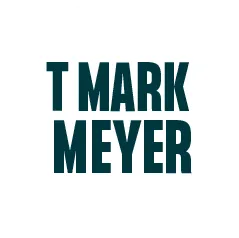
Authentic Leadership Choices: Doing Away With Your Double Standards
Imagine you're coming out of the grocery store, a bag in each hand. You look across the street and see an elderly lady on the other sidewalk. She is slowly walking down the street when she suddenly trips and falls. You quickly run across to her, put down your bags, and help her up. You stay with her for a few minutes to make sure she is okay. She is, and she thanks you before going on her way.
It goes without saying that you help and support your family and friends. But this old lady was a stranger. There was nothing self-serving to be gained from helping her. Yet you did it, and you would do it again. There's no question about it - your concern for other human beings, your morals, your values command that you do it.
The scene of us helping a stranger in need, such as the elderly lady, illustrates our inherent drive to act upon our values. But does this automatic trigger to help extend beyond the boundaries of our personal lives and into our professional environments?
Fast forward to the next day at 9 a.m. You've just walked through the door of your office building. Did you bring the same set of values with you? If the family-owned company next door was struggling - if it had metaphorically 'fallen' - would you stop by and see how you and your company could help? If one of your suppliers were struggling, would the first thing you do be searching for alternative suppliers (just in case), or would you reach out to see how you could help? Experience tells me you most likely wouldn't, and if you did, you wouldn't do it with the same 'no questions asked' conviction that you helped the old lady with. Our conscience seems to operate differently at work than it does in private. There appears to be a double standard between our private life and our professional life.

Rethinking the Zero-Sum Game⚖️
Arguably the premise is different at work. It's competitive. There are margins to be made, market share to be conquered. Spending time on anything else could potentially cost too much. But that argument only holds true if you perceive business as a zero-sum game - where another's gain is your loss and vice versa. Real life often presents plenty of win-win opportunities that can allow you to act from your personal core values at work.
I experienced this firsthand at a company I was at several years ago. We were negotiating with a new, very big client. Usually, these types of clients would negotiate price down to the lowest possible point, and often we would have a hard time delivering the service they expected for the price we eventually agreed upon. But not this client. The leader in charge of the negotiations took a genuine interest in us and sought to understand what our situation would look like if he wanted a discount on certain services in the contract. He then only asked for discounts on the points that seemed reasonable for both parties and did not push the price on any points that would put an unnecessary strain on us.
That client did not get the cheapest possible deal, but he did get the most sustainable one. We produced the best results for that client - the best we ever managed for any client in the history of the company - and we did that for seven years in a row.
Our new client had a principle he applied to everything he did. He wanted to make sure "it made sense and worked for everyone in the entire value chain," as he would put it, whether it was his staff, his suppliers, or his own clients. That principle came from him bringing his personal values of caring and understanding into his work life. Bringing his personal values into his work life also ensured the best possible deal between our two companies.
Dare To Employ Your Personal Values To Get Professional Gains 🏆
It pays off to bring our personal values and our compassionate selves to work. It pays off to do away with the double standards. Next time you show up at work, bring your personal values with you and make sure you put them in play.
Oh, and don't feel bad if you have had one set of values at work and another in private. There's a perfectly good explanation for that, and it has to do with the way our conscience works. If you want to find out, make sure you read the next newsletter, where I'll address just that, along with how we not only have double standards in work and private life but also have double standards in the way we act when we're at work.
In the mean time, try to identify one situation where you can bring your personal values into a professional decision. See how it changes the dynamics of the situation. Or, think about a recent decision at work. Were your personal values reflected in it, or did you feel a disconnect? Reflecting on these instances can help us recognize our double standards and how they might be impacting our professional lives.
Tangible Tip - Your Personal Values Action Plan 💡
List the personal values that are important for you. Highlight those you do not express or find hard to express at work, and make a concrete action plan on how to express those values at work.

